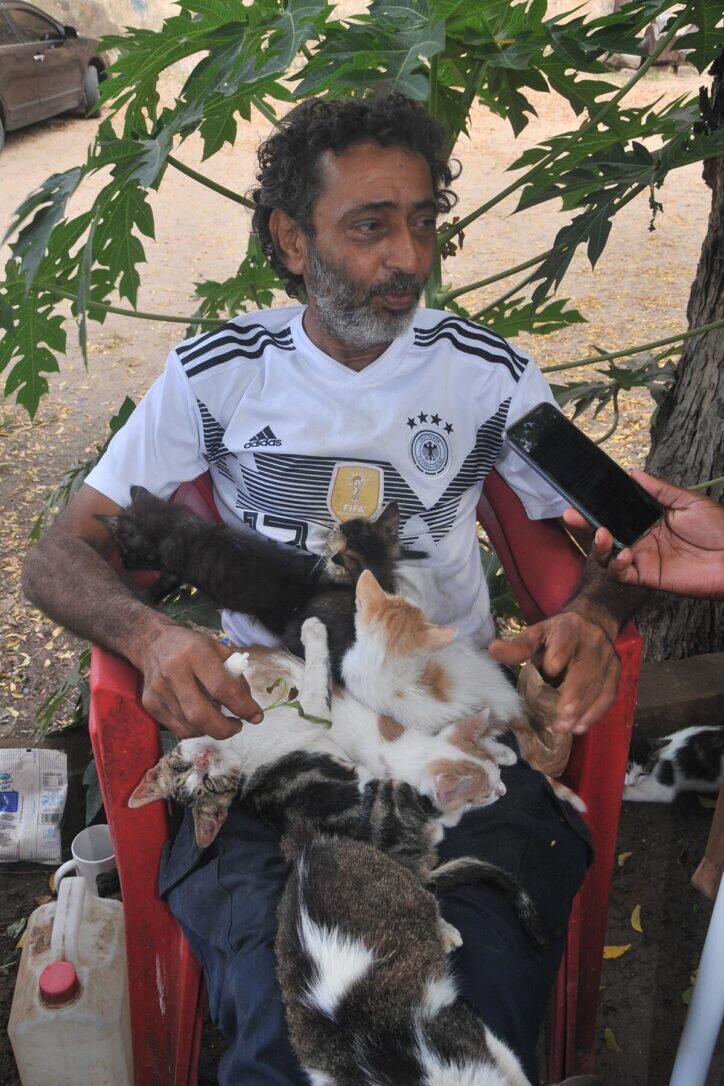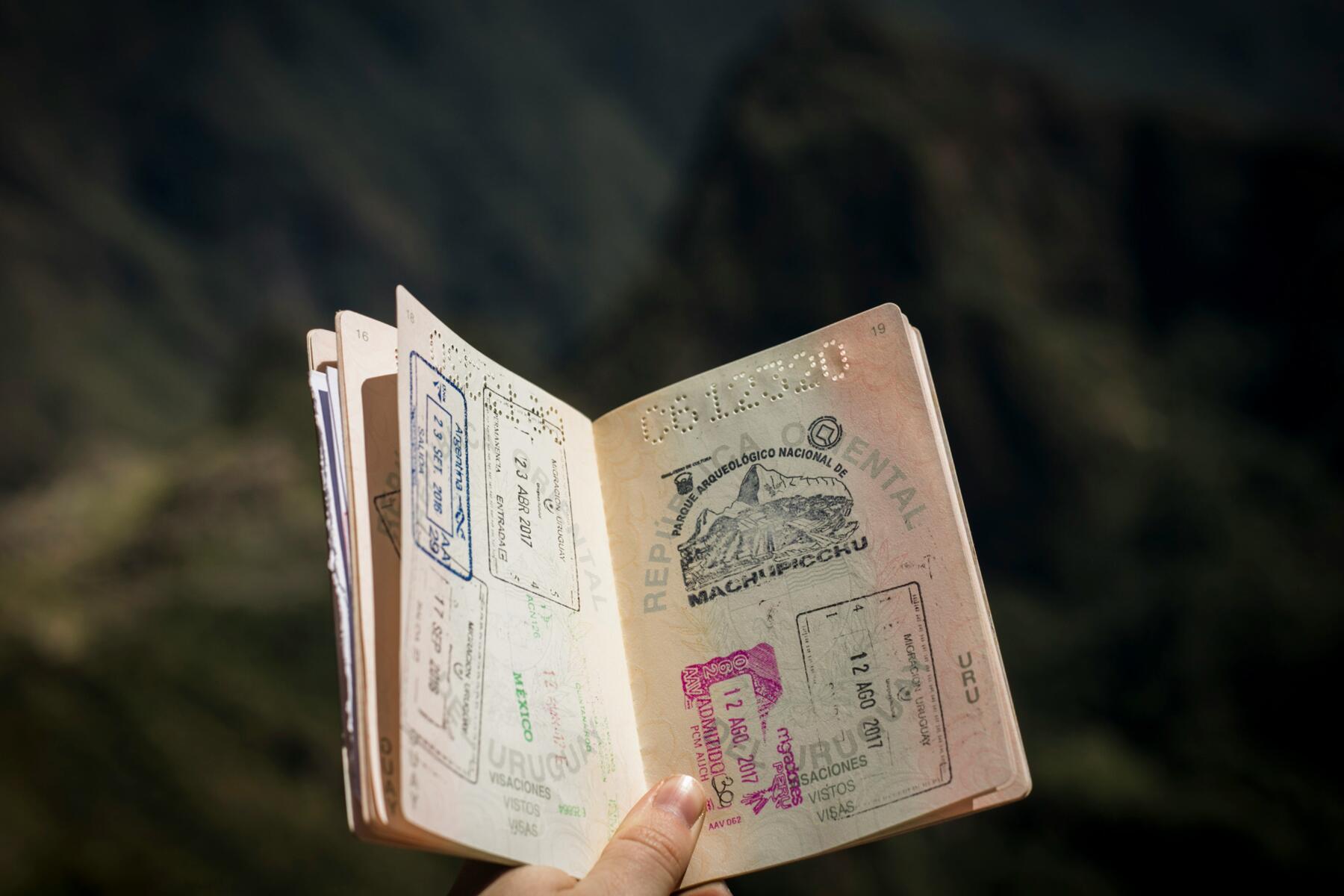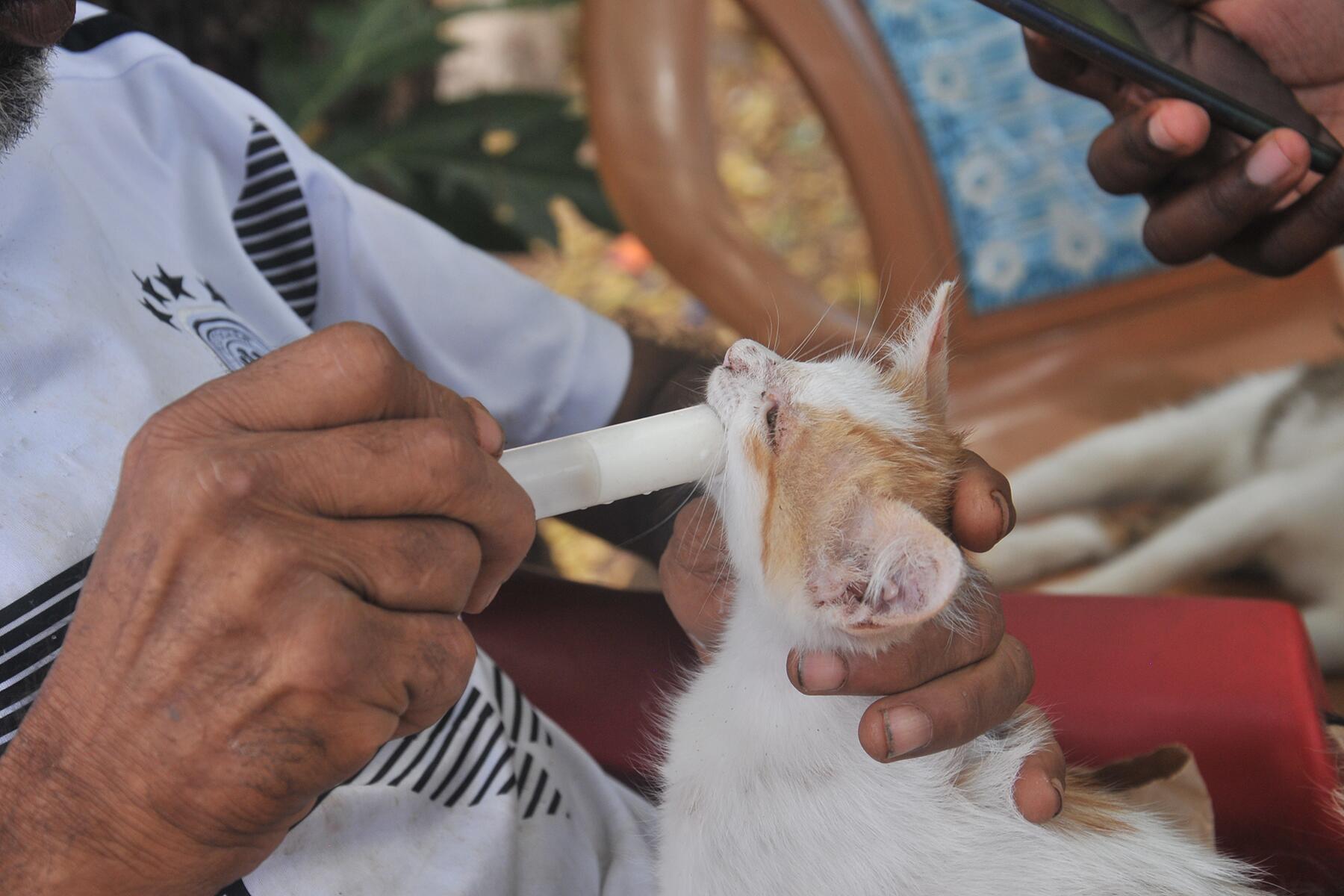Superstitious Mombasa residents are terrified of Hussein Ahmed, a caretaker to 300 stray cats thought to be evil spirits.
A
clowder of colorful cats in Kenya’s second-largest city of Mombasa run stealthily from their shade in a rescue center toward a strange man who nurtures them.
It is almost lunchtime and the hungry, noisy felines want something to eat from their caretaker sitting on a chair under a big tree. They had spotted him arrive with a paper bag full of omena (a species of small freshwater ray-finned fish).
Hussein Ahmed, 64, is branded as a witch by the superstitious locals for associating himself with the frightful cats. But he admiringly beams at the innocent felines he rescued from the city’s streets.
The self-proclaimed baba paka in Swahili (loosely translated as “father for cats”) has been rescuing and taking care of the cats for decades.
Hussein developed the love for cats at the age of eight and his late father gifted him two kittens in 1978 from Kenya’s capital, Nairobi.
Recommended Fodor’s Video
“It [was] between 1988 and 1989 when I started to take care of many cats, feeding them with fish from the Indian Ocean as a fisherman,” Hussein states.
He currently tends to more than 300 cats in five rescue centers within Mombasa, the coastal city among the top holiday destinations in Kenya for both local and international tourists. Mombasa, breezily humid and rejuvenating, is also the country’s oldest urban center with several historical landmarks like the fortified Fort Jesus, built by the Portuguese, at the shores of the Indian Ocean. There are numerous posh five-star hotels including Sarova Whitesands Beach Resort & Spa, and Serena Beach Resort & Spa strategically located close to the shores of the ocean.
Hussein’s main cat rescue center, with over 150 felines, is located close to Fort Jesus. He feels enraged when the Mombasa cats are perceived as jinn (a kind of evil mythical spirit said to shapeshift into other creatures.)
“Have you ever spotted a cat that is a jinn in your life? People referring to these cats as jinn do it from lies and foolishness. They are the jinn and not these cats,” Hussein dismisses furiously.

The superstition around cats as jinn is born from several tales in Mombasa linked to sorcery, where witches allegedly turn felines into human incarnates to terrorize residents. Locals claim that sometimes the scary cats produce funny noises like the cries of babies and adults.
A 53-year-old resident, Mrs. Zubeda Pendo, when asked about Hussein and his cats, holds that he is a “bad person and can’t be trusted”.
“There is a mystery behind his association with the cats. How can someone keep such many cats for himself for nothing? And, what’s the reason behind it?” she poses. She shakes her head curiously. “There is something he hides from us.”
Asked if she has a cat at home, Zubeda notes that she doesn’t and vows not to keep one for fear of tending a jinn.
“The Mombasa cats are jinn. I don’t trust them, and Hussein should relocate from Fort Jesus because his cats scare away tourists,” she says.
Hussein doesn’t benefit from his cattery centers in any way. However, he complained about some crooked locals who sometimes sneak into his Fort Jesus cat rescue center with tourists while he is away, then demand payment after claiming to be feline caretakers.
A 32-year-old resident, Zuma Ismail, concurs with Zubeda in demanding Hussein relocate because he and his friends always panic upon seeing him and the cats.
“I do believe that Mombasa cats are jinn and Hussein should be moved to the outskirts of the city,” Ismail says.
However, a 44-year-old local, Mrs. Mimy Rashid disagrees with the duo for demanding Hussein to relocate based on hearsays.
“If no one has ever experienced any bad ordeal with Hussein’s cats, then his rescue center should not be relocated. He should continue assisting these neglected cats,” Mimy opines.
Hussein’s Fort Jesus cattery center earned a nearby stage a name dubbed “Stage ya Paka” in the Swahili language, which is loosely translated as “The Stage for Cats” by commuters.
Although Mimy has a cat at home for her kids, she confirms that fears of the Mombasa felines are due to the jinn belief. She was a child when she first heard about the scaring myths of cats turning into human beings and vice versa.
“I have to fear since this has been the norm here. I am often so scared when I bump into a cat at night because you can’t tell if it’s a real cat or a human incarnate,” she notes.
But Mimy perceives Hussein as a “good-hearted person” and a “Good Samaritan” who should be respected for cats. She requests that superstitious locals accusing Hussein of practicing witchcraft give him the benefit of doubt.
Hussein dismisses locals linking him to witchcraft by insisting that he nurtures the cats out of passion and love.
“I always don’t care what people say about me. Many stray cats suffer a lot; they drink dirty water in the sewage, go without food, and have no shelter. I’m going to do everything to help them,” he affirms.
The cats are fed on a variety of diets such as milk, meat, and fish, among other foods. Hussein states that he provides the felines three meals a day without any assistance from anyone save for two well-wishers who sometimes offer food.
“We people can beg for a few pennies from each other to buy food when we starve, but what about these cats? Where can they go begging?” he asks.
Hussein always faces the headache of treating sick cats because he cannot afford their medicines and the city has no single clinic for cats. He notes that the city’s administrators don’t care about the cats.
“I am forced to give sick cats any drug including Panadol (a common pain medication–usually used for humans) because I don’t have proper medicines. There are no cat clinics like in Western countries. Go abroad and see how such cats are cherished,” he says.
Hussein watches YouTube videos and marvels at how others take good care of cats.
Asked whether he can tell apart every cat under his care, Hussein chuckles excitedly before revealing that he knows each by name. The cats meow unevenly as he calls out Malkia, Kiriku, Kuchu, among others from the clowder. He also states that the cats know him and always run to him cheerfully whenever they spot him or hear his voice.
Hussein points out that the love for cats is passed down in their family. His late grandfather and father cherished the cats the same. As do his siblings, who sometimes assist him in taking care of the felines in other rescue centers.
His immense love for cats has made him give marriage a wide berth and has no plan of marrying or having children.
“Suppose I had a wife, would you have seen me hanging around with cats? Wouldn’t I be around my wife? It is better I’m not married and I have these cats. I’m thankful to Allah,” he remarks with a grin.



